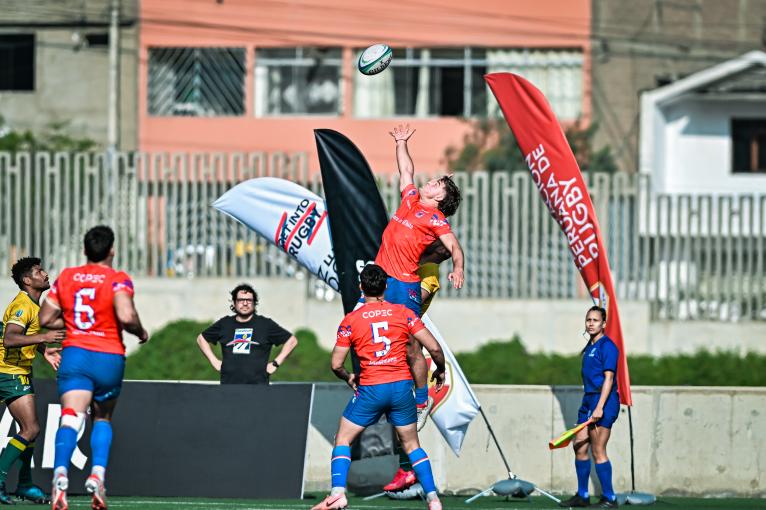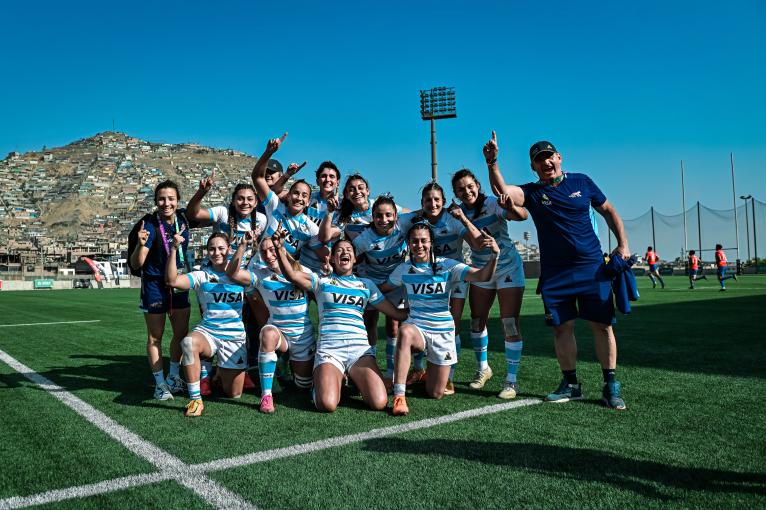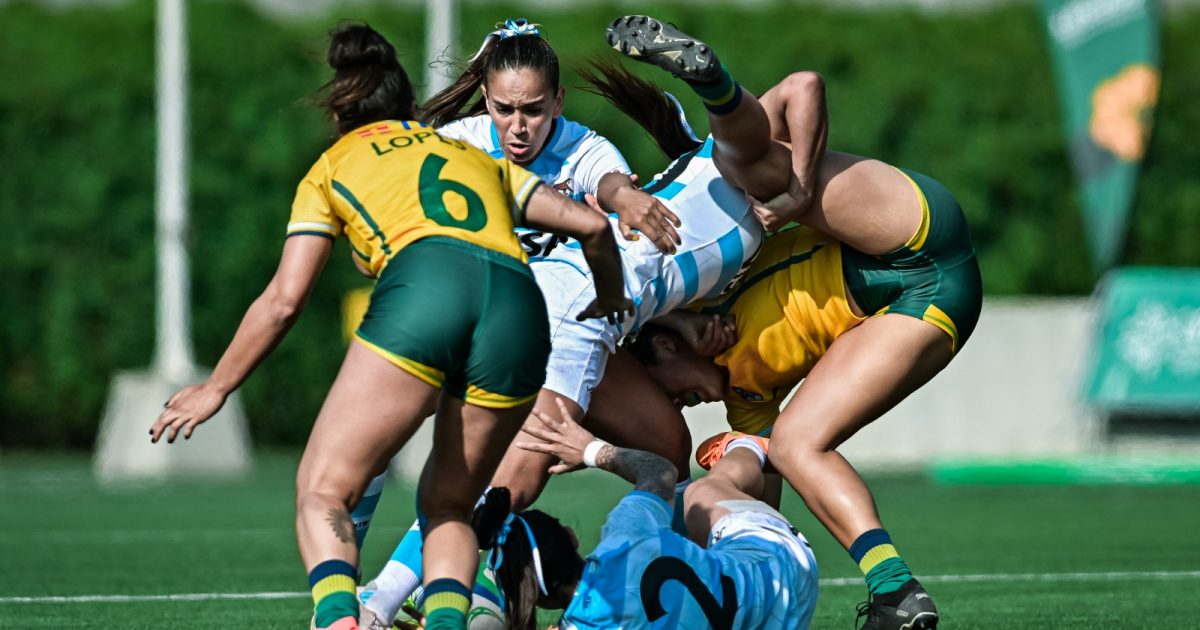Sudamericano 7s: Four sides qualify for Challenger Series

Peru’s Villa María del Triunfo welcomed sixteen contenders for the 2024 Sudamericano 7s, with Chile and Brazil, in the men’s, and Argentina and Colombia, in the women’s, claiming the South American spots for the 2025 World Rugby Sevens Challenger Series.
Cóndores, the new South American 7s kings
In the men’s, Chile and Brazil crossed the finishing line in style, winning every game in the pool stage. The Cóndores, who came close to promotion to the SVNS Series in 2024, took down Guatemala, Peru and Paraguay without conceding any tries and scoring 151 points on their way to the Championship semifinals. Brazil also had a stellar first day, defeating Costa Rica, Venezuela and Colombia to qualify for the knockout stages.
In the semis, Chile conceded their first twelve points of the weekend but were able to counter a spirited Colombia side with the game wrapping up 29-12. As for the Tupís, they had no trouble in their match against Paraguay, successfully defeating their old-time rivals by 36-00.
With both teams already qualified for the Challenger Series, Chile were in control for most of the match, scoring two tries in the opening half, both dotted down by Federico Contreras. Brazil tried to counter Chile’s dominance, but the best the Tupís could do was a single try from Rafael Teixeira.

With just a handful of minutes to play, Brazil started to crack under pressure with the Chileans boxing their rivals inside the last 22, waiting for the right moment to strike. That strike came from Iñaki Tuset, with the flamboyant speedster breaking through and diving triumphantly to help Chile claim their third Sudamericano. 19-05 was the final score.
Colombia finished in third, one of their best runs in the tournament since their debut.
Yaguaretés retain the Championship
As for the women’s, Argentina and Colombia qualified for the Challenger Series as stated in the header, but the trophy was claimed by Brazil. The Yaras, who have held their status as a SVNS core team, decided not to stand down from participating in the Sudamericano, serving as Crystal Kaua’s first experience as the new head coach of the Brazilians.
In pool A, Argentina finished in 1st place earning wins against Venezuela, Paraguay and Colombia, with the Colombians coming in 2nd. In pool B, Brazil had a superb showing in Kaua’s debut, defeating Uruguay, Peru and Chile; topping the group followed by the Uruguayans.
However, in the semifinals, the Brazilians had to sweat to defeat a resilient Colombia team who fought valiantly for a spot in the championship final, with a 12-05 final score. Argentina and Uruguay put on a vibrant show, with the former earning a spot in the final thanks to a 17-10 result.
In the bronze final, Colombia and Uruguay went all-out with the match going back-and-forth between sides until the final two minutes. When the Uruguayans seemed close to a third try, a turnover from the Cafeteras sparked a counter-attack, ending with Colombia scoring a decisive last five-pointer. With little time left, the Colombians prevailed, winning 17-12 and earning a ticket for the 2025 Challenger Series.
In the final, Argentina provided a proper shock, as the Las Yaguaretés proceeded to defeat Brazil and claim the title, retaining a trophy they won for the first-time in 2023. The Argentinians secured an early lead, with stalwart Cristal Escalante cruising past the try-line, with Brazil equalizing through Anne Crysyan’s hands. But just before half-time, Argentina added an extra seven points, an insurmountable lead for the Yaras to overcome.

Argentina remained poised and secured a third try to counter the Brazilian’s second, with the Championship final ending 17-10.
With the 2025 World Rugby Sevens Challenger Series scheduled to start in February, South America has the chance to expand their representation in the SVNS to a maximum of seven teams.
















